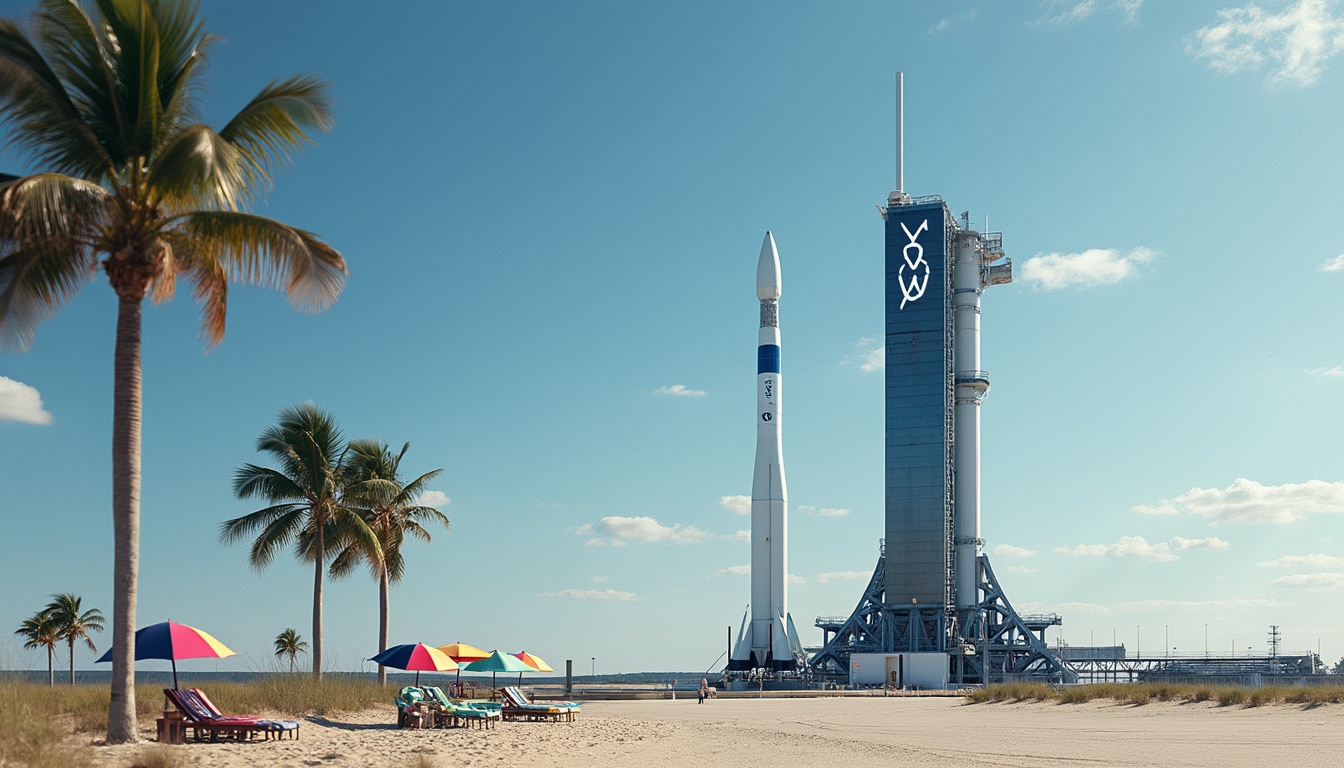The ongoing debate surrounding the proposed transfer of Texas public beach access to SpaceX highlights significant concerns for local communities and the environment. With lawmakers pushing bills that would allow Elon Musk’s space venture to gain control over beach areas, many residents fear that the implications could jeopardize public access and overall well-being. This article delves into the intricate dynamics between SpaceX’s ambitions and the resulting consequences for Texas’s infrastructure, tourism, and local economy.
The Rising Influence of SpaceX in Texas
In recent years, SpaceX has become a pivotal player in the Texas economy. The establishment of the company’s launch facility at Boca Chica has transformed the area, attracting attention and investment. While this has fostered advancements in technology and commerce, it has also raised pressing concerns regarding the company’s influence over public resources. The implementation of legislative proposals—such as Senate Bill 2188 and House Bill 4660—aims to hand over beach access rights to a company that prioritizes its interests over the community’s needs.

Proposed Legislation and Its Implications
The proposed legislation enables cities surrounding spaceports to close public beaches for “spaceflight activities.” The criteria specifically benefit a future town christened Starbase, primarily composed of SpaceX employees. Critics argue that granting control of natural resources to a corporation undermines public access rights guaranteed under the Texas Constitution, particularly emphasizing environmental responsibility and community well-being. The potential closure of public beaches limits residents’ rights to engage in recreational activities essential for a healthy lifestyle.
Furthermore, the legislation’s specificity raises ethical concerns. Residents in the area, comprising primarily SpaceX employees and their families, will largely dictate the future of public lands that should serve the broader Texas populace. The implications reach far beyond casual beach access, affecting local economic viability and community spirit.
Community Concerns: Balance Between Development and Public Access
The community surrounding Boca Chica faces a dilemma. On one hand, the influx of technological innovation promises jobs and infrastructure development. On the other hand, the essence of community hangs in the balance, as public spaces become increasingly privy to corporate interests. Beach access is not merely about leisure; it represents cultural heritage and social interactions fundamental to Texas’s identity.
Environmental Considerations in the Beach Management Debate
The environmental impact of granting a private entity control over public beaches cannot be overlooked. Beaches serve as essential ecosystems, providing habitats for wildlife and acting as natural barriers against coastal erosion. SpaceX’s operations, which often necessitate large-scale construction and activity, could disrupt these vital areas, leading to long-term environmental degradation.
Moreover, the legislation stands in stark contrast to the broader movement for preserving public spaces across the United States. As cities grapple with the challenges of development and conservation, granting authority to close public beaches emerges as a pathway to ecological negligence. Engaging the public in decisions related to natural resources is paramount in ensuring responsible stewardship of these lands.
Tourism and Economic Impact: A Double-Edged Sword
The economic implications of SpaceX’s presence in Texas are profound, particularly in the tourism sector. The anticipation surrounding space launches generates significant interest, drawing visitors from around the globe. However, creating a company town like Starbase at the expense of public beach access raises questions about the long-term sustainability of tourism revenue.
Balancing Rights and Responsibilities
While the excitement of space exploration captivates many, it is vital to recognize that a thriving tourism industry relies on attracting diverse visitors to enjoy Texas’s unique offerings. Restricting public access to beaches may alienate potential tourists, ultimately undermining the economic benefits associated with SpaceX’s operations.
Moreover, as localities grapple with these changes, it is essential to consider how public investments can enhance infrastructure while ensuring that community needs are prioritized. An open dialogue between SpaceX, state lawmakers, and local residents is crucial for establishing a balance that respects both development and community interests.
Regulatory Framework and the Future of Public Access in Texas
The regulatory framework surrounding public access in Texas must evolve to prevent the privatization of public resources. The bills proposed not only blur the lines between private interests and community needs but also challenge the legislative responsibilities to uphold the rights of the population. Significant constitutional concerns arise when discussing the transfer of authority over public beaches to a corporation like SpaceX.
Strengthening Public Policy for Community Protection
Legislators should focus on creating policies that empower communities rather than enabling corporate control over essential resources. Robust public policy can ensure environmental stewardship while promoting tourism and economic growth without compromising public access. Engaging stakeholders at all levels is key to formulating an equitable approach to managing natural resources in Texas.
In light of this evolving landscape, a comprehensive approach that encompasses community engagement, environmental responsibility, and economic foresight is necessary. Open discussions about inclusion and the protection of public spaces represent a step toward a more balanced relationship between corporate ambition and communal rights.
| Aspect | Current Situation | Proposed Changes |
|---|---|---|
| Public Beach Access | Open to all residents and tourists | Limited access for SpaceX operations |
| Community Involvement | Active participation in local decisions | Restricted control by future Starbase residents |
| Environmental Protection | Regulated access for ecological conservation | Potential degradation from corporate activities |
| Economic Contribution | Tourism thriving on local attractions | Decline in tourism due to access issues |
Understanding the implications of these evolving dynamics forms a critical part of ensuring community strength in Texas. As space exploration advances, the principles of access and inclusion must remain at the forefront of decision-making, especially when it concerns vital resources like beaches.




Leave a Reply